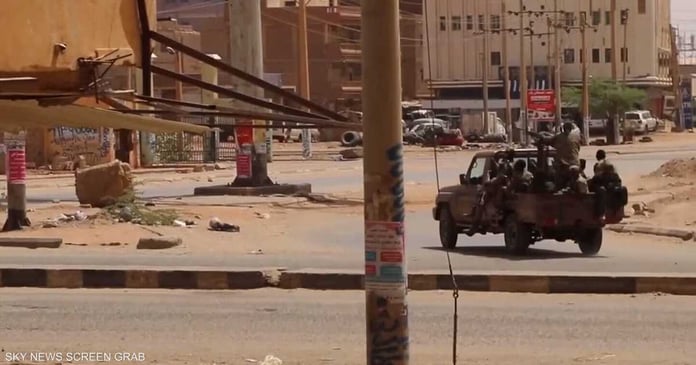On Thursday, the United States imposed economic sanctions and visa restrictions “against parties that engage in violence”, in a bid to dry up the sources of funding for both sides in the conflict, namely the army and the Rapid support forces, according to US officials.
On Wednesday, the Sudanese army suspended its participation in the ceasefire talks sponsored by Washington and Riyadh, accusing the Rapid Support Forces of non-compliance, while the latter affirmed its unconditional support for the Saudi initiative. American.
What is the effect of sanctions?
The Sudanese strategist, Brigadier General Sati Surkti, describes the United States as a “non-neutral party” and equates the army with the RSF.
He explains to “Sky News Arabia” that “Sudan has been used to US sanctions for decades”; Thus, “there is nothing new” concerning the impact of what Washington announced on the sanctions.
As for the Sudanese writer and political analyst, Hammour Ziada, he expects the sanctions to have a “quick impact” on both sides of the conflict.
He based this on the fact that “the sanctions were smart and not hasty”, and were not “general economic across the whole country”, and “this is the first time we have seen such sanctions against the Sudan, as it is not possible to predict their effects or impact at this time.”
Scope of sanctions
The US sanctions target companies in the industrial, defense and armament sectors, including the company “Sudan Master Technology” which supports the army. With regard to the Rapid Support Forces, the sanctions apply to Al-Junaid Mining Company, which operates gold mines in the Darfur region and finances the aforementioned forces. These sanctions do not directly affect the commander of the army, Abdel Fattah al-Burhan, and the commander of the Rapid Support Forces, Mohamed Hamdan Dagalo. On Thursday, US National Security Adviser Jake Sullivan justified the imposition of sanctions on the desire to hold accountable those responsible for undermining the peace after breaching the ceasefire.
Since the beginning of the fighting on April 15, the Sudanese army and the Rapid Support Forces have agreed to 12 truces, all of which were immediately violated, the latest of which was the ceasefire agreement of a week negotiated by the United States and Saudi Arabia.
The magnitude of the fight
The writer Hammour Ziadeh believes that the army’s suspension of its participation in the talks “will again trigger clashes and fights”.
He points out that Sudan is moving towards the expansion of war operations in the capital, Khartoum, and in several cities, and says: “The war could return to the first four weeks, which will worsen the humanitarian situation in the country, which suffers from a great food crisis that extends every day, the health system has collapsed and the savings of citizens are about to run out.”
Military and strategic expert Major General Amin Majzoub holds Rapid Support Forces responsible for ‘truce violations’; While the army was “forced” to retaliate and then suspend its participation in the Jeddah talks, according to his opinion.
He added that the army, for its part, is now working to “clean up” the homes of citizens or the hospitals of these forces, which currently “occupy” 29 hospitals in Khartoum.
According to him, it is “clear that the mediators could not put pressure on the rapid accompaniment to implement the obligations, to get out of the hospitals and the homes of the citizens, and to stop the looting and looting on the roads, that it’s about cars or money inside banks”. and markets.”
According to UNICEF, more than 13.6 million children need humanitarian assistance in Sudan, including “620,000 who suffer from acute malnutrition”.
More than a million people have fled to safety inside or outside the country, including 350,000 to neighboring countries, half of them to Egypt and the rest to Chad, South Sudan, Central African Republic and Ethiopia.
Read the Latest World News Today on The Eastern Herald.


